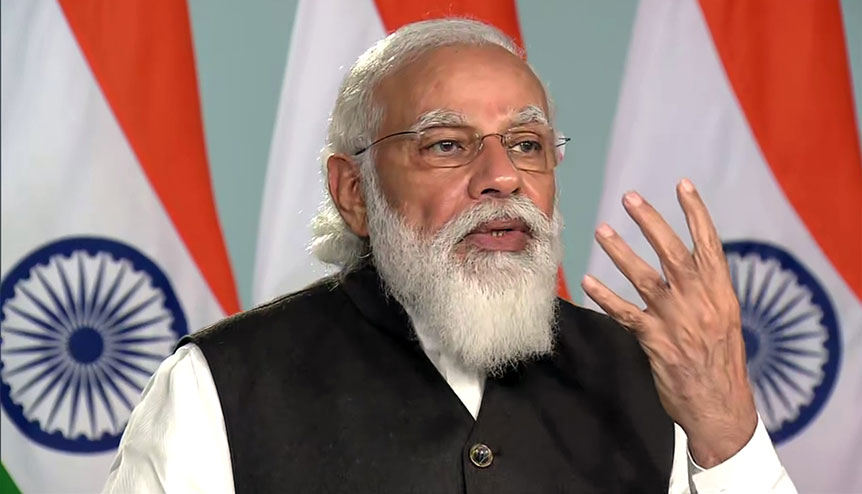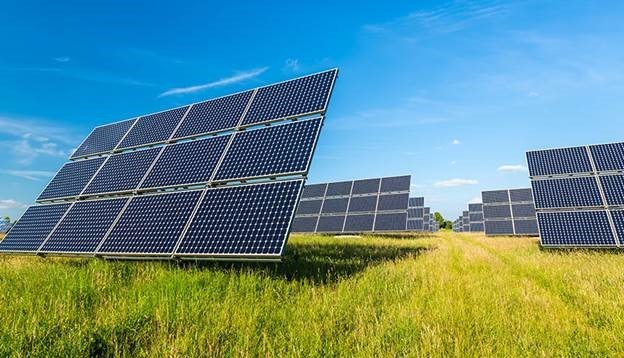India poised to lead the charge on climate change

Against pronouncements that weighed more on words and less on action, in the Global Climate Action Summit, Indian PM Narendra Modi could be the global leader to assume the role of change maker.
Indian prime minister Narendra Modi’s pronouncement that the country was doubling down on clean energy sources and was on track to achieve the emissions norms set under the 2015 Paris climate change accord would be music to the ears of the global community and those who are chomping at the bit to invest in that sector in India to boost the country’s economic progress.
Going by the fine print of that historic commitment and reiterated by Modi at the Global Climate Ambition Summit last week, India, one of the top emitters of greenhouses gases that leads to global warming, is eyeing 450 gigawatt of renewable energy capacity by 2030, Renewable energy capacity would reach 175 gigawatt before 2022, he said.
If the pandemic has taught India anything it is the perfection of the art of self-reliance and while the economy is showing signs of new found stamina, following the government imposed lockdown which was mandatory, the focus on renewable energy is an extension of the out-of-the-box approaches being adopted by the government to zone in on renewable, low carbon, carbon recycle techniques and breakthrough in renewable energy and energy storage and utilization.
To provide a further boost towards making renewables an attractive prospect the government has initiated key reforms in a bid to attract foreign direct investment (FDI). The reasoning adds up – India is in a position to become the fourth largest renewable energy playground worldwide by 2030 and this means it will account for 9 percent of all global renewable energy use. A post-Covid charge for renewables will significantly transform the sector.
India initiates key policy reforms in RE
There is plenty on offer for everybody economically and commercially speaking. Key policy reforms enabling the 100% FDI for all renewables under the automatic route for renewable energy generation and distribution projects has helped to push out easy transfer of capital and technology. The government has played its part by firming up the macroeconomic fundamentals, ensuring policy stability, and introducing several fiscal incentives, thereby steadily improving its position in the World Bank’s Ease of Doing Business rankings and the WEF’s Global Competitiveness Index. It currently ranks third in the EY Renewable Energy Country Attractiveness Index.
Setting targets holds little value, if our achievements against those targets aren’t reviewed.
At the Global Climate Ambition Summit, Hon’ble PM Sh @narendramodi Ji emphasises the need to continuously revise our targets higher albeit in line with progress made. pic.twitter.com/LEuScfmSh8
— Dr Harsh Vardhan (@drharshvardhan) December 12, 2020
Add to that the generous toppings of initiatives like tax incentives for setting up mega-manufacturing plants for solar cells, lithium storage batteries, electric vehicles and charging infrastructure, a fresh focus on the grids to produce a seamless and increased integration of renewables and the fact that the Indian market itself is a huge, diverse eco-system that facilitates attractive locations for projects ensures that investors will be looking at a low risk perception when eyeing a post-Covid world which will be geared up for the use of alternative energy.
There is little doubt that India is playing its part as a responsible global citizen in its commitment towards climate change which will affect future generations. UN Secretary-General Antonio Guterres detailed the risks very clearly when he called on every nation last week to declare a “climate emergency” during the marking of the fifth anniversary of the Paris climate accord during which world leaders paid lip service to their previous pledge to arrest global warming, while the data showed that changes made were insignificant when weighed up against the seriousness of the crisis.
A serious global crisis
“Can anybody still deny that we are facing a dramatic emergency?” said Guterres, a former prime minister of Portugal who has made climate change his signature issue. “That is why today, I call on all leaders worldwide to declare a State of Climate Emergency in their countries until carbon neutrality is reached.”

India is focusing on solar energy as part of its RE commitments. Under the Paris Agreement, New Delhi has promised to generate 40 per cent electricity from non-fossil fuel sources by 2030.
What the world currently needs is one breakthrough policy, to push for the end of fossil fuels, adopted by a responsible government and India seems poised to slip into that space, just as it has led on so many issues to highlight its status as a responsible global power that is second to none during the pandemic.
The 2030 target, set by countries, is massive in terms of scale unless there is a dramatic shift in action. There will be renewed calls for stress testing G7 economies to restrict support for oil and gas companies. The tactic calls for faster action to meet the requirements of the Paris deal.
Long on words, short on action
While campaigners and negotiators have admitted that the Paris Accord has gathered more pace since the time it was formed, with countries representing around 65% of global carbon emissions now expected to have committed to reaching net zero greenhouse gas emissions, or carbon neutrality, by early next year, it still does not brush away the rising global temperatures, melting of permafrost, droughts, floods, wildfires, or collapsing ice-sheets.
LIVE #PressBriefing
UK is committed to closer cooperation across the key issues that matter to us both – including trade, health and climate change.
UK and India will work even closer on being a global #ForceForGood over the next decade. pic.twitter.com/zv8IYbou5e
— UK in India🇬🇧🇮🇳 (@UKinIndia) November 10, 2020
It is no coincidence that Modi made a renewed call to launch a campaign against climate change during the G-20 virtual summit hosted by Saudi Arabia. Addressing the G-20 leader in a discussion titled ‘Safeguarding the Planet: The Circular Carbon Economy Approach’, Modi said would surpass its Paris Agreement commitments. “Inspired by our traditional ethos of living in harmony with the environment, and the commitment of my government, India has adopted low-carbon and climate-resilient development practices,” he stated while propagating an integrated, comprehensive and holistic approach.
It would take just one nation to stand up and lead this charge in significant fashion where actions speak louder than words. All bets, in this case, are on India to emerge as a rule maker.




